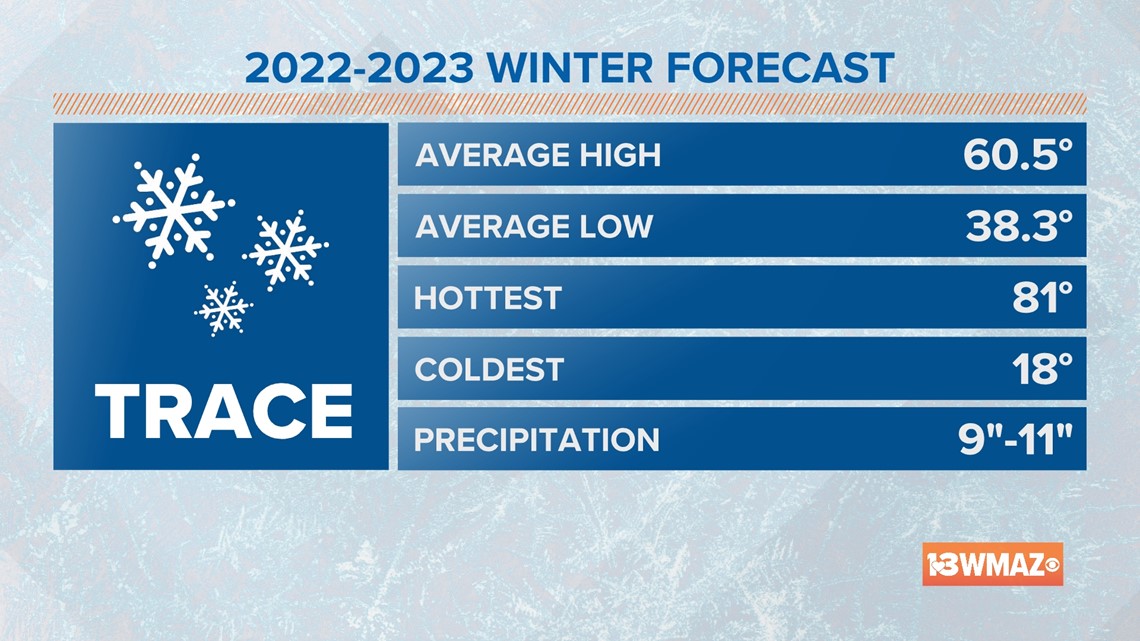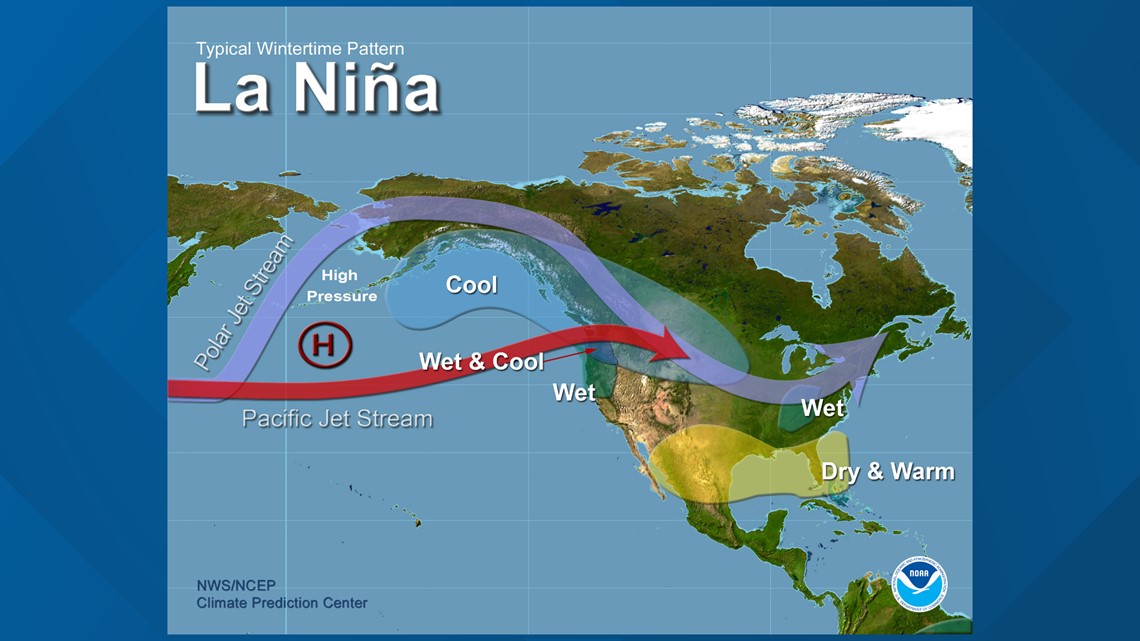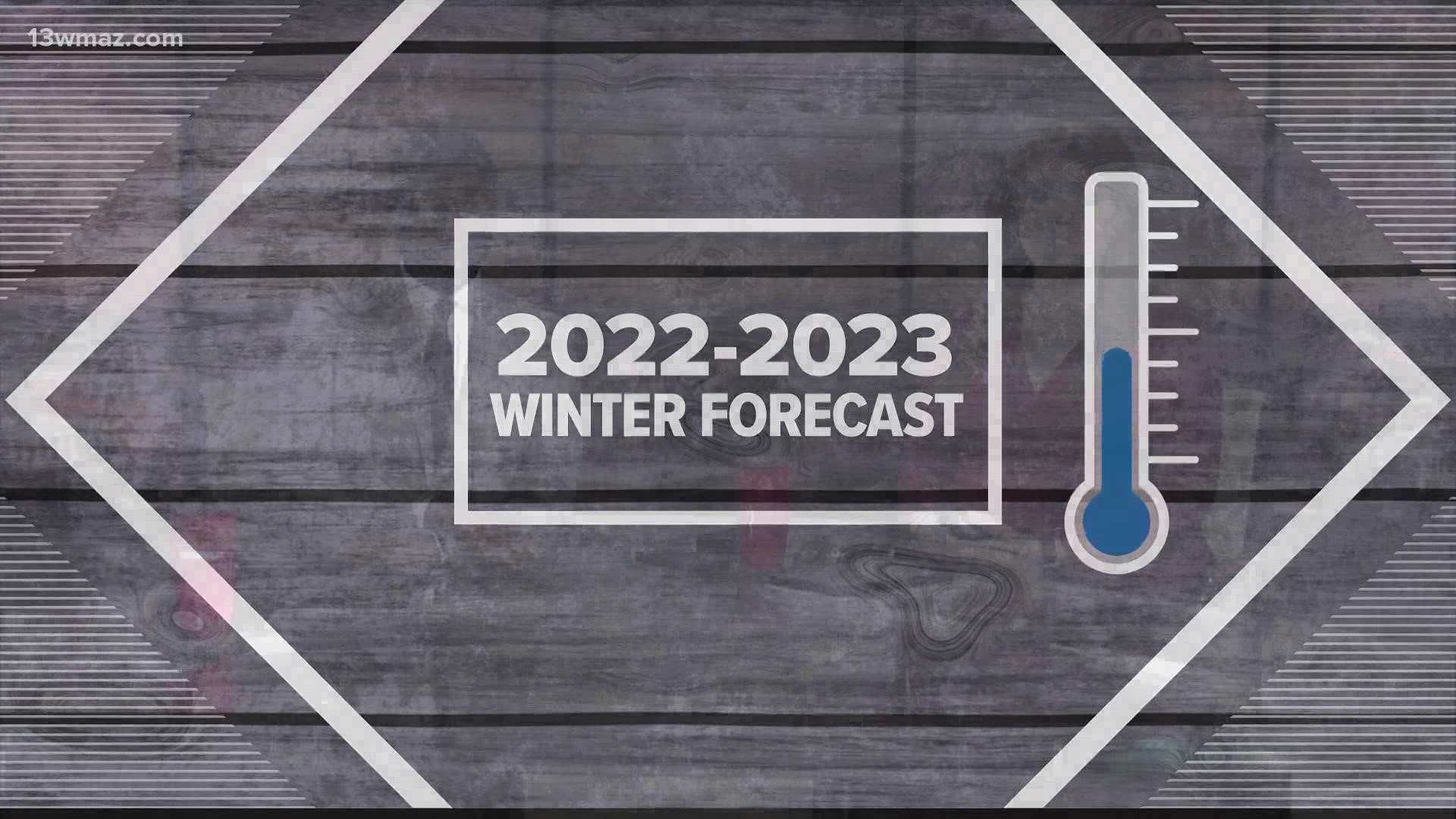MACON, Ga. — After a chilly fall, many central Georgians are wondering what our winter is shaping up to be like. The 13WMAZ Weather Team poured over the data and answers your questions in our 2023 Winter Weather Outlook.
Fall 2022: By the Numbers
Fall 2022 is coming to a close with the 2022 seasonal average coming in more than a degree below normal.
With more than 90 days in meteorological fall, more than a degree below normal is more significant than it sounds. It takes a lot of cold air to achieve that, especially with the occasional heat waves we saw over the past three months.
The temperature spread of meteorological fall was quite significant as well. September 22 saw a high temperature of 98° in Macon while the morning of November 21 saw a low temperature of 25°.
Central Georgia lacked in the rainfall from September to November. Only 5.31" was recorded at Middle Georgia Regional Airport. A normal meteorological fall would see 8.47" of rain.
Drought conditions continue to be an issue in the Peach State due to this.
Winter 2022-2023: What to Expect
Meteorological winter will begin on December 1, 2022 and run through February 28, 2023.


Temperatures: Slightly above average
Precipitation: Drier than average
Snowfall: Very slim chance, but not zero!
When beginning our winter seasonal outlook, we start in the same region of the world when making a hurricane season outlook: the equatorial Pacific Ocean. The water temperature just off the coast of South America has a direct link to the weather patterns in North America.
For the past several winters, the water temperature has been in a La Niña phase, meaning the waters are cooler compared to normal. The expectation is for La Niña to come to an end in the months ahead, but not in time for winter.
We are expected to be in a weak La Niña phase through the season.
There are 24 La Niña winters on record in central Georgia, 10 of which were weak. We can use those 10 winters as a baseline of what to expect for 2022-2023.


In years past, the Pacific Jet Stream is kept to the north more often than not, keeping the really cold air bottled up in Canada and sending rain-and-snow-makers through the northern half of the United States.
However, since the La Niña pattern is expected to be weak in nature, an occasional dip in the jet stream is likely, bringing bone-chilling air to central Georgia.
For temperatures, expect most days to see highs in the 50s and 60s, with one-two heat waves (highs in the upper 70s and 80s) and one-two arctic outbreaks (lows in the low 20s and teens).
If we were a betting team, here are the numbers we would take:
- Average High: 60.5°
- Average Low: 38.3°
- Hottest: 81°
- Coldest: 18°
With the jet stream to the north through a majority of winter, we are unlikely to see rain-makers on a weekly basis. That being said, we are still expecting to see 9-11" of rain between December and February, which is more than we saw during fall.
However, the 9-11" prediction is short of what an average winter sees.
What about snow? Well, we live in central Georgia. The chance of seeing snow is never high. But, with this year it is especially not likely for the same reason we are expecting to see above average temperatures and below average rainfall.
The chance is not zero through. Back in the winter of 2017-2018, we picked up an inch of snow with a weak La Niña in place. So, there's hope, just not a lot of it!
Buckle up! Here comes winter!

